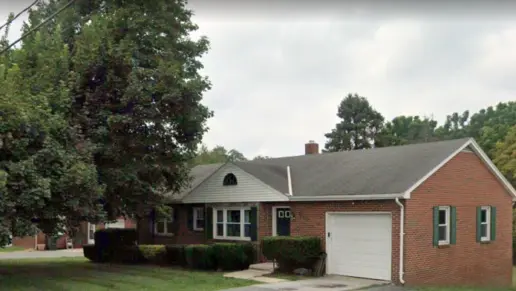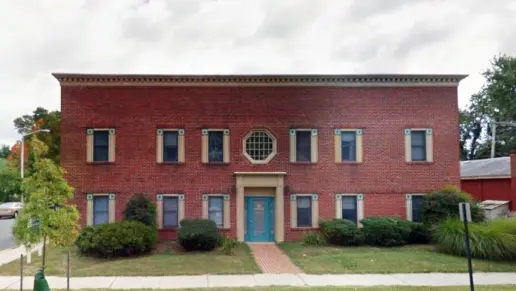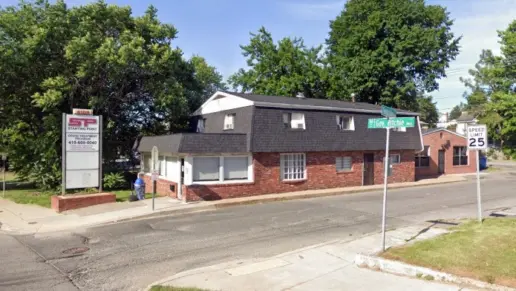About Recovery Network – Charles Street
Recovery Network in Baltimore, Maryland, offers a unique opportunity for residents in the community to receive integrated care when facing a behavioral health disorder or co-occurring mental health and substance use disorder. Baltimore holds a unique place in the country’s history as the birthplace of The Star-Spangled Banner, American Railroading, and Babe Ruth, each with attractions you can visit.
Residential and Outpatient Care
They offer residential and outpatient substance use disorder treatment, medication management, an outpatient mental health therapy program, and an outpatient anger management program. Your program begins with an intake assessment to identify your specific needs and which forms the foundation of a customized treatment plan.
They have two levels of residential treatment. One is a low-intensity level that provides treatment in a group home and the second is a high-intensity level that provides 24-hour oversight with trained counselors and a typical length of stay of 30 to 90 days.
Medication Assisted Treatment for Opioid Use Disorder
Outpatient services for substance use disorders also include aftercare services. If you have a history of opioid dependence and are unable to maintain sobriety, they offer medication-assisted treatment using buprenorphine.
When you’re unable to attend in-person sessions, they also offer teletherapy options that include substance use disorder counseling and cognitive behavioral therapy. They provide DUI or DWI services that meet court requirements, and treatment for pregnant and postpartum women.
The program provides ancillary services to support your overall treatment process. They are accredited by the Commission on Accreditation of Rehabilitation Facilities (CARF).
They work with many private health insurance providers, Medicaid, Medicare, and accept self payment. Sliding scale fee is available based on your income and other factors if you are uninsured or if your insurance is insufficient.
Rehab Score
Other Forms of Payment
Medicaid is a state based program that helps lower-income individuals and families pay for healthcare. Medicaid covers addiction treatment so those enrolled can use their coverage to pay for rehab. When a program accepts Medicaid the client often pays very little or nothing out of their own pocket.
Private insurance refers to any kind of healthcare coverage that isn't from the state or federal government. This includes individual and family plans offered by an employer or purchased from the Insurance Marketplace. Every plan will have different requirements and out of pocket costs so be sure to get the full details before you start treatment.
Self-pay involves paying for treatment out of your own pocket. You can use savings or credit, get a personal loan, or receive help from family and friends to fund your treatment. If you don't have insurance or your insurance plan doesn't cover a specific program, self-pay can help ensure you still get the care you need.
Financial aid can take many forms. Centers may have grants or scholarships available to clients who meet eligibility requirements. Programs that receive SAMHSA grants may have financial aid available for those who need treatment as well. Grants and scholarships can help you pai for treatment without having to repay.
Military members, veterans, and eligible dependents have access to specific insurance programs that help them get the care they need. TRICARE and VA insurance can help you access low cost or no cost addiction and mental health treatment. Programs that accept military insurance often have targeted treatment focused on the unique challenges military members, veterans, and their families face.
Addiction Treatments
Levels of Care
 Medically Assisted Detox
Medically Assisted Detox
 Inpatient
Inpatient
 Sober Living Homes
Sober Living Homes
 Intensive Outpatient
Intensive Outpatient
 Outpatient
Outpatient
 12-Step
12-Step
 Aftercare Support
Aftercare Support
Treatments
The goal of treatment for alcoholism is abstinence. Those with poor social support, poor motivation, or psychiatric disorders tend to relapse within a few years of treatment. For these people, success is measured by longer periods of abstinence, reduced use of alcohol, better health, and improved social functioning. Recovery and Maintenance are usually based on 12 step programs and AA meetings.
Once a person has become addicted to a substance, drug rehab in Maryland is often necessary to overcome that addiction. These programs provide the tools individuals need to manage the physical, mental, and emotional issues involved and begin a successful recovery journey.
Many of those suffering from addiction also suffer from mental or emotional illnesses like schizophrenia, bipolar disorder, depression, or anxiety disorders. Rehab and other substance abuse facilities treating those with a dual diagnosis or co-occurring disorder administer psychiatric treatment to address the person's mental health issue in addition to drug and alcohol rehabilitation.
A combined mental health and substance abuse rehab has the staff and resources available to handle individuals with both mental health and substance abuse issues. It can be challenging to determine where a specific symptom stems from (a mental health issue or an issue related to substance abuse), so mental health and substance abuse professionals are helpful in detangling symptoms and keeping treatment on track.
Opioid rehabs specialize in supporting those recovering from opioid addiction. They treat those suffering from addiction to illegal opioids like heroin, as well as prescription drugs like oxycodone. These centers typically combine both physical as well as mental and emotional support to help stop addiction. Physical support often includes medical detox and subsequent medical support (including medication), and mental support includes in-depth therapy to address the underlying causes of addiction.
Programs

Adult Program

Young Adult Program
Clinical Services
Whether a marriage or other committed relationship, an intimate partnership is one of the most important aspects of a person's life. Drug and alcohol addiction affects both members of a couple in deep and meaningful ways, as does rehab and recovery. Couples therapy and other couples-focused treatment programs are significant parts of exploring triggers of addiction, as well as learning how to build healthy patterns to support ongoing sobriety.
Alcoholism and drug abuse have devastating effects on everyone closest to the addict. They believe that recovery from addiction is most successful when the family is involved in treatment. The following services are available to those families willing to participate in a patient’s treatment: family education, family therapy, couples counseling, introduction to 12-step programs, co-dependency groups and parenting education.
Group therapy is any therapeutic work that happens in a group (not one-on-one). There are a number of different group therapy modalities, including support groups, experiential therapy, psycho-education, and more. Group therapy involves treatment as well as processing interaction between group members.
In individual therapy, a patient meets one-on-one with a trained psychologist or counselor. Therapy is a pivotal part of effective substance abuse treatment, as it often covers root causes of addiction, including challenges faced by the patient in their social, family, and work/school life.
Trauma therapy addresses traumatic incidents from a client's past that are likely affecting their present-day experience. Trauma is often one of the primary triggers and potential causes of addiction, and can stem from child sexual abuse, domestic violence, having a parent with a mental illness, losing one or both parents at a young age, teenage or adult sexual assault, or any number of other factors. The purpose of trauma therapy is to allow a patient to process trauma and move through and past it, with the help of trained and compassionate mental health professionals.
Amenities
-
Private Setting
Staff & Accreditations
Staff
Keia Briscoe
Outreach Specialist
Robert Rumsby
Historian, Research, and Analyst
Accreditations

The Commission on Accreditation of Rehabilitation Facilities (CARF) is a non-profit organization that specifically accredits rehab organizations. Founded in 1966, CARF's, mission is to help service providers like rehab facilities maintain high standards of care.
CARF Accreditation: Yes
Contact Information
201 N. Charles Street
Suite 200
Baltimore, MD 21201


